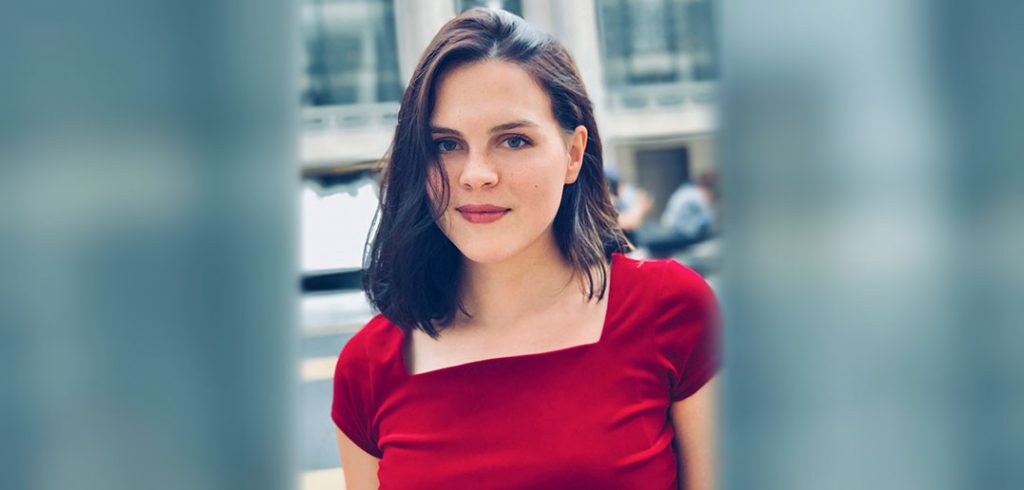Kayla Matteucci is the first Fordham student to be selected as a James C. Gaither Junior Fellow at the Carnegie Endowment for International Peace, a prominent global think tank with research centers around the world. Matteucci, one of only 12 students chosen from several hundred applicants for this prestigious program, will focus on nuclear policy during the yearlong fellowship.
“I will be a supporting researcher to senior fellows who have a lot of experience,” Matteucci says about the appointment, which begins in August and is based in Washington, D.C. “I’ve respected Carnegie’s work for a long time and used a lot of their work in my own research. I’m excited to be surrounded by these scholars.”
The fellowship provides the framework for Matteucci to advance her research in nuclear policy, an area of study she became interested in as an intern in the Center on National Security at Fordham Law during her sophomore and junior years.
“They work in the broader realm of international security,” explains the international relations and Spanish major who is graduating from Fordham College at Lincoln Center. “I was doing research related to counterterrorism and cybersecurity and there’s a lot of overlap with nuclear policy.”
From the Center for National Security, she was recruited by Sandia National Laboratories, the nuclear arms lab based in her hometown of Albuquerque, New Mexico. She served there as an international nuclear safeguards and security intern for nearly 18 months.
Today, Matteucci is interning with two nongovernmental organizations at the United Nations, where her focus has shifted from strategy to disarmament.
“It’s very different from the work I did at Sandia, where the focus was often on nonproliferation and strategic concerns,” she says. “I’m in the process of informing myself. Being in the field, you have to understand all of it.”
Matteucci says she aspires to a life of public service that may include government work. She notes the need for more women in leadership positions and more critical thinkers on the subject of nuclear policy in a country that has “one of the largest arsenals in the world.”
“When you learn about nukes and the strategic environment,” she said, “you inevitably learn about conventional weapons as well. So it gives you the full scope, which is why I consider it such a useful lens.”
In April, Matteucci traveled on a Fordham-funded trip to Geneva for the U.N. Preparatory Committee meeting for the 2020 Nuclear NonProliferation Treaty, attending as part of a youth delegation. She and her peers spent a week speaking with ambassadors and monitoring proceedings in the General Assembly. Matteucci also interviewed representatives from NGOs as part of her research for an independent study at Fordham.
“It was clear that states are preparing for the eventuality of cooperation on disarmament,” she says. “This is both timely and hopeful. With dialogue lacking in most political spaces—even the nuclear field is quite partisan— it is exciting to see people searching for common ground.”
Her passion for international policy began in high school with a debate case on unilateral intervention in foreign conflicts. After that, she says she “was hooked.”
Matteucci has presented at multiple conferences and was the first undergraduate student accepted into the Next Generation Safeguards Initiative course at the National Nuclear Security Administration. She has also contributed to the Journal of the Institute of Nuclear Materials Management and other publications.
A blues pianist who regularly sings and performs, Matteucci enjoys attending live concerts with her father who plays Spanish classical guitar.
One of her best memories? When she played the same piano graced by the talents of her idol, the legendary Herbie Hancock, at a jazz club in Spain while studying abroad in her junior year.
“It was the coolest moment of my undergraduate years!” she says.
–Claire Curry


